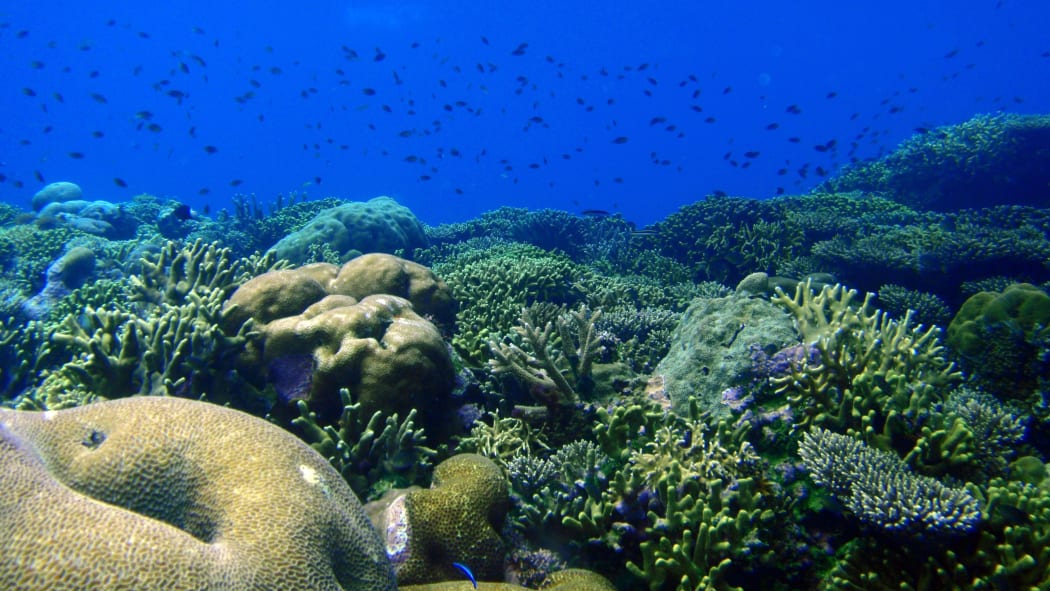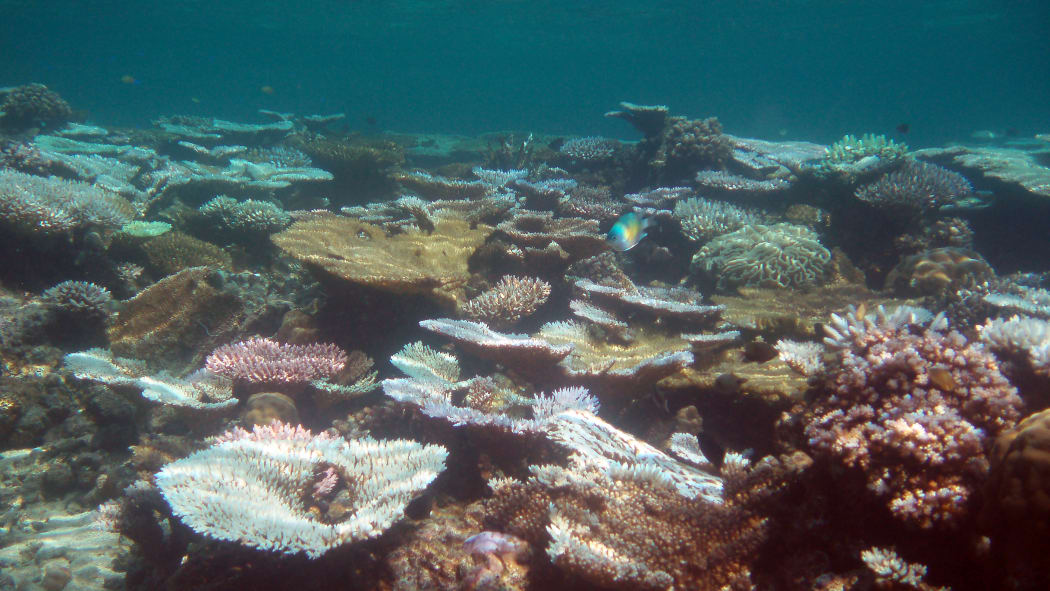The smell of dead coral from bleaching in reefs off Australia's east coast is having dramatic repercussions for small reef fish, who rely on their sense of smell to learn about and avoid predators, say scientists.
Professor Mark McCormick, who studies coral reef fish at James Cook University, talks with Kathryn Ryan:

Healthy coral reefs are a vibrant patchwork of colour and texture. Photo: Mark McCormick

Coral Reef, bleached Photo: Bridie Allan
The Great Barrier Reef is suffering worst coral bleaching in recorded history with 93% of the World Heritage Site affected.
This recent finding – by a team from Australia and Sweden researching damselfish – is not only bad news for the fish, but the reef itself, because it could seriously threaten the living colonies replenishing.
Read an edited extract of the conversation:
This must break your heart, it must break many people’s hearts, the threat that the reef is under. And first just explain what bleaching is and how it affects the reef.
Mark McCormick: Corals are an animal and they live in symbiosis within algae. So over evolutionary time most of their energy comes from the algae through photosynthesis – it’s producing glycogen and glucose. Consequently when the water temperature increases, the first thing to get stressed is a plant. It starts producing some quite nasty by-products and literally throws out the coral.
Consequently, this poor little animal, the coral – that has evolved to be given food – then has to try and make its own way with somewhat rudimentary tentacles - and can’t do it.
What is causing the bleaching?
Mark McCormick: Sadly, really, you need to put it down to climate change. There’s really good evidence of climate change - whether we’re actually driving it or not is another matter. But certainly the temperatures are going to be record again this month probably. And we’ve had a record heating event across that part of the ocean.
Explain why the dead coral dulls the sense of the damselfish. What is it that they’re not receiving that keeps them healthy?
Mark McCormick: Keep in mind that fish are in water, in the marine environment, and are doing things quite differently than we do on land. Their balance of senses that they use to inform their decisions are quite different. We concentrate on probably vision and hearing most of all, a fish tends to concentrate on vibration and sense of smell, and vision is often obscured – actually a really distant third, probably. For them the sense of smell is critically important.
When you’ve got a healthy coral reef and you pull part of it out of the water, really there’s not that much of a smell to it. When you get a dying or dead coral reef it gets covered in algae… and when you bring it out of the water it really reeks. We’d been working on how fish learn for quite some time and we’ve been bringing some of this coral and dead rubble into the lab. And we got so many complaints from the people that were working with us about the smell, we thought this is probably critically important for the animals, as well.

